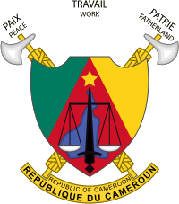DEPARTMENT OF SMALL AND MEDIUM SIZED ENTERPRISES (DPME)
Under the authority of a Director, the Department of Small and Medium-Sized Enterprises shall be responsible for:
- formulating and implementing government policy on the development of small and medium-sized enterprises (SME);
- designing strategies for setting up small and medium-sized enterprises;
- defining an action plan and implementing strategies for the development and promotion of small and medium-sized enterprises;
- improving on the business environment in collaboration with administrations concerned;
- supporting institutions that finance small and medium-sized enterprises in collaboration with the competent administrations and organs;
- promoting financing mechanisms adapted to small and medium-sized enterprises in collaboration with the competent finance institutions and administrations;
- supporting transfer of technology to small and medium-sized enterprises;
- fostering capacity building for small and medium-sized enterprises;
- seeking market niches for products of small and medium-sized enterprises in league with the competent administrations and organisations;
- supporting the access of small and medium-sized enterprises to highly developed sectors;
- supporting the amelioration of competitiveness of small and medium-sized enterprises;
- following up the activities of the SME sector;
- putting in place an information system for SMEs.
DEPARTMENT OF HANDICRAFTS AND INFORMAL SECTOR MIGRATIONS (DAMSI)
Under the authority of a Director, the Department of Handicrafts and Informal Sector Migrations Service shall be responsible for:
- drawing up and implementing government policy on handicrafts;
- identifying and promoting handicraft sectors;
- facilitating the creation of handicraft enterprises;
- supervising handicraft enterprises, following up conformity to standards and improving the quality of handicraft products;
- preparing and implementing a strategy for promoting handicraft products, in conjunction with the administrations concerned;
- following up the implementation of capacity building mechanisms for craftspeople;
- seeking market outlets for handicraft products;
- defining and improving on the status of craftspeople;
- promoting professional and craft guilds;
- seeking and building support mechanisms for craftspeople, in collaboration with the administrations concerned;
- checking the execution of programmes and projects in favour of craftspeople;
- processing results of studies and surveys carried out on the informal sector;
- processing results of studies on the possibilities of migration in the informal sector;
- drawing up and implementing a national policy on migration from the informal sector to the formal economy;
- ensuring the coherence of programmes to favour the migration of activities of the informal sector towards the formal economy, in conjunction with partners and administrations concerned.
DEPARTMENT OF SOCIAL ECONOMY (DES)
Under the authority of a Director, the Department of Social Economy shall be responsible for:
- implementing the national policy on the development of the social economy;
- structuring social economy organisations;
- drawing up and implementing specific regulation for the social economy, in conjunction with the competent administrations;
- coordinating and following up support actions to benefit the social economy;
- developing and professionalising social economy organisations;
- monitoring and evaluating programmes and projects of social economy organisations;
- supporting the upgrading of social economy organizations;
- putting in place a framework and spearheading consultation between the State and the social economy organisations;
The handling of the social economy card-index, in collaboration with the competent services.

